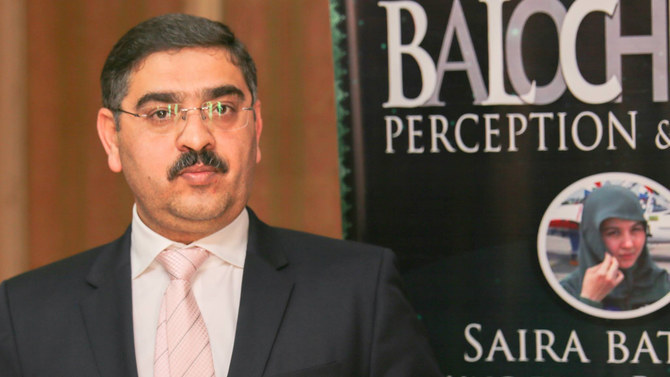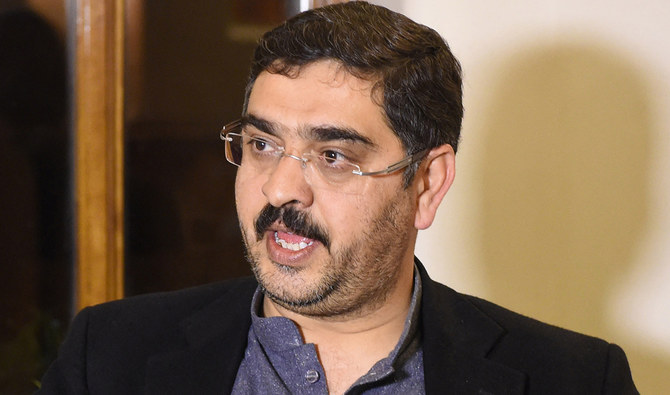ISLAMABAD: Pakistan President Arif Alvi on Saturday approved the appointment of Anwaar-ul-Haq Kakar, a relatively unknown figure from the southwestern Balochistan province, as the caretaker prime minister, the presidency said.
Kakar’s name was unanimously announced by the country’s outgoing PM, Shehbaz Sharif, and the leader of the opposition in the National Assembly, Raja Riaz, on Saturday to run the interim administration ahead of the next general elections.
It is unclear for now when Kakar will take the oath of his new office.
“President Dr. Arif Alvi has approved the appointment of Anwaar-ul-Haq Kakar as the caretaker prime minister,” read a post on President Alvi’s official account on messaging platform X. “The president approved the appointment under Article 224 A of the constitution.”
Kakar entered the political fray in 2008 and is viewed to be close to the country’s powerful military by analysts who have observed his career.
He started his political career from the platform of the Pakistan Muslim League-Quaid (PML-Q) party and contested election against the Pakhtunkhwa Milli Awami Party chief, Mehmood Khan Achakzai, on a National Assembly seat from Quetta. He lost the contest and joined Pakistan Muslim League-Nawaz (PML-N) in 2012, though he could not secure the party ticket for the 2013 national polls.
“It’s in public knowledge that Anwaar-ul-Haq Kakar is very close to the Pakistani Army and even started his political career from the establishment-backed PML-Q party,” Shahzada Zulfiqar, a senior journalist and analyst in Balochistan, told Arab News on Saturday.
Zulfiqar said that Kakar was among the founding members of the Balochistan Awami Party (BAP) which was widely viewed as a creation of the military establishment to rule the volatile and impoverished Balochistan province.
Political analysts say the caretaker premier’s actions and conduct in the coming weeks will help describe his personality and character, besides his role in holding free and fair national elections in the country.
A caretaker government is mandated under the Pakistani constitution to supervise holding free and fair national elections, which must be held within 90 days of the dissolution of the parliament’s lower house, meaning early November.
But after the outgoing administration of Sharif approved the results of the latest census, the Election Commission now has to draw new boundaries for hundreds of federal and provincial constituencies and will be able to give an election date only after that exercise is complete. The vote is thus widely expected to be delayed to as far as February.
















